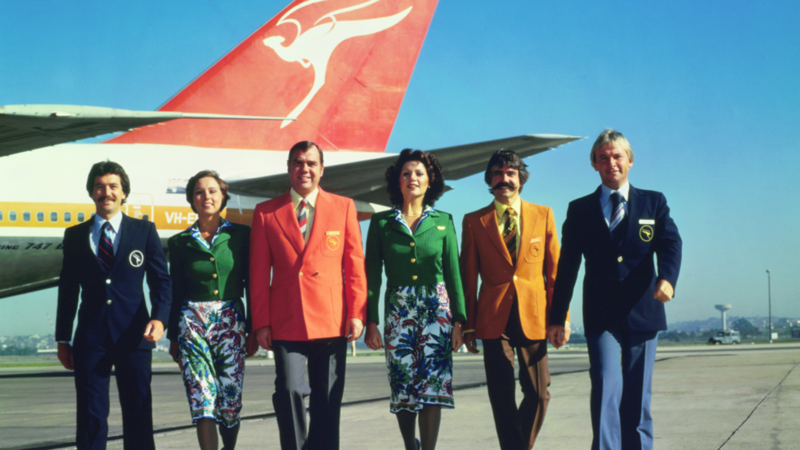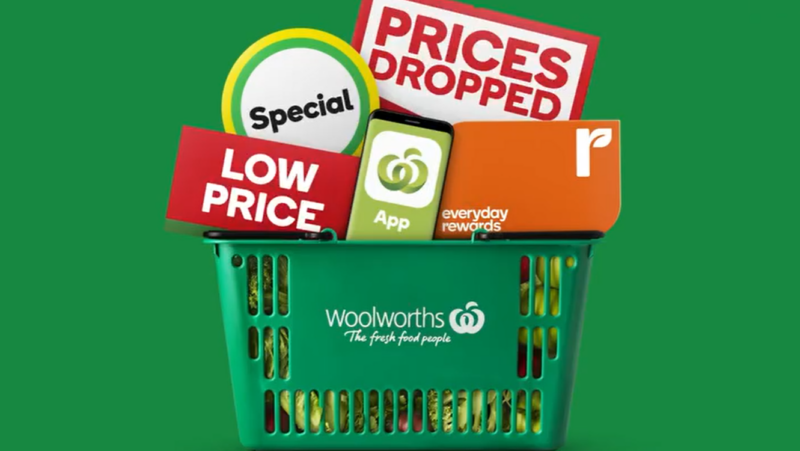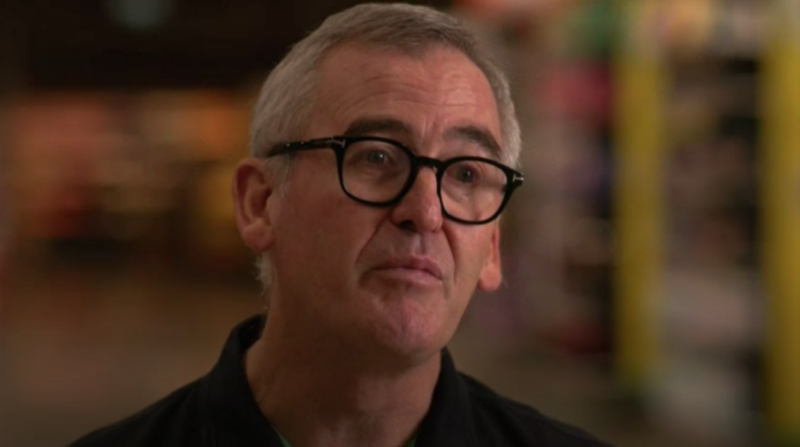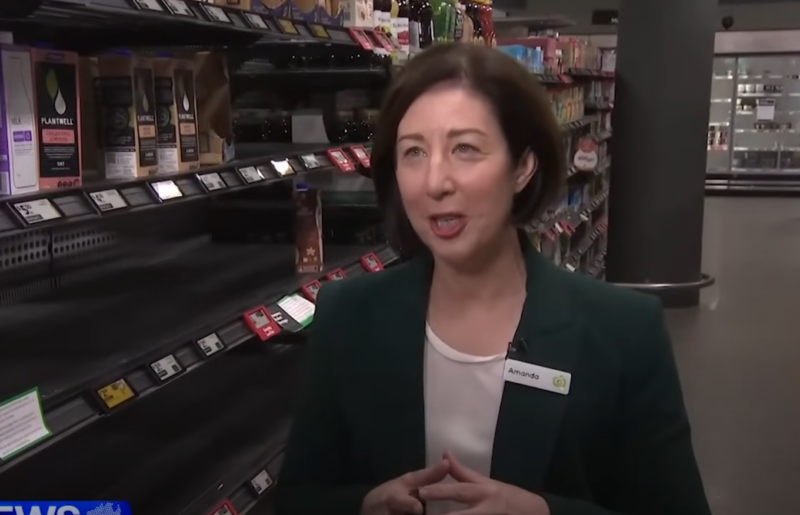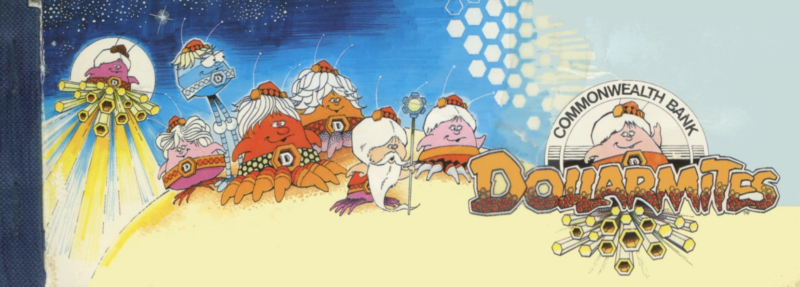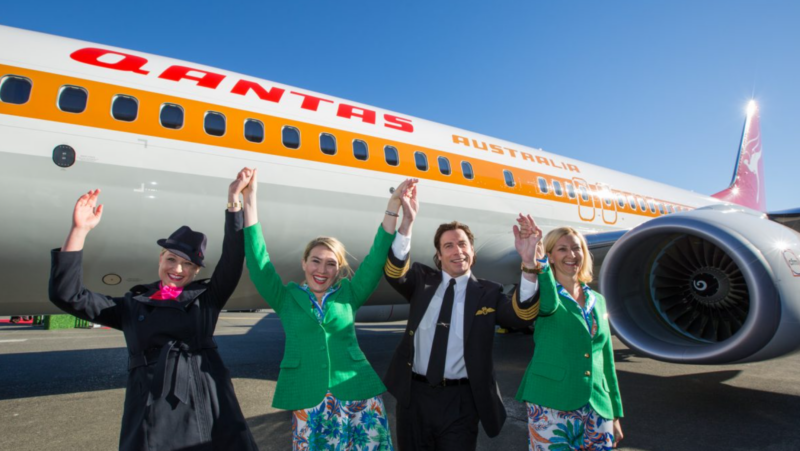Who’s left to trust in 2025?
So, this is Christmas. And, what have you done?
Hopefully, the answer isn’t “eroded the trust of the general public” or “tanked the value of a public company” or “used a cost-of-living crisis to trick millions of customers and squeeze farmers” or “laid waste to centuries of collective on-air talent”.
Oh, boy! 2024 was a tough one for many. But it’s over soon.
And while most of the jaw-dropping gaffs and horrendous behavioural breaches outlined below are systemic, endemic, and ongoing – as we pack up our laptops, write non-denominational platitudes in our out-of-office messages, and prepare to sweat out ham and Heinekens by the pool – we can look back through the sepia-stained lens afforded to the past, and calmly think, ‘Meh, that was 2024, let’s deal with all mess next year.’
After all, you’ve got a plane to catch. Possibly. After all, yesterday saw some 500 Qantas maintenance workers at Sydney, Melbourne, Brisbane, Perth, and Adelaide airports walk off the job, disrupting what Sydney Airport said was slated to be its busiest travel day since 2019.
This is happening because Qantas, who delivered a $1.25 billion profit during the 2024 financial year, are fighting with three different unions (the Australian Workers Union Electrical Trades Union, and Australian Manufacturing Workers Union) over a 15% upfront pay rise for its ground staff, with 5% bumps over each of the next two years.
Over the next six weeks, 13.5 million people are predicted to move through those five airports.
AMWU national secretary Steve Murphy said “Qantas is to blame if there’s any disruption to commuters over the holiday period”, telling The Nightly the airline has six weeks “to do what they said they would”, namely, come to the bargaining table.
Spoiler alert: they won’t.
Maybe we should have sympathy for the airline, though. After all, in October, they copped two big fines: one for illegally sacking 1,700 ground staff workers during COVID, and the other for knowingly selling 86,000 tickets to flights that had already been cancelled, then waiting a fortnight to bother telling customers they bought flights that were never going to take off.
The competition watchdog also released a report last month that showed that some Qantas flights had more than doubled in cost since Rex Airlines (who are currently being sued by ASIC for “deceptive and misleading conduct”) stopped travelling to capital cities in July.
The ACCC report showed a 13.3% average increase in domestic fares since July, with trips from Canberra to Gold Coast up by 171%, and Brisbane to Hamilton Island leaped 122%.
Defending a 95% price jump for an Adelaide to Melbourne flight at the end of October, Qantas Domestic chief executive, Markus Svensson, blamed four sold-out Coldplay concerts in Melbourne for the surge pricing. Glad that’s cleared up, then.
2024 also saw a fun glitch in Qantas’ booking system that meant some users could accidentally see other passenger details and boarding passes on their own devices – but that privacy breach was almost quant, what with its less-than-seismic impact on the Australian public.
It’s been fun to watch Qantas plummet in the Roy Morgan trust index, where just two-and-a-half years ago, the airline was deemed by the Australian public to be the sixth most-trusted brand – behind Woolworths, Coles, Bunnings, ALDI, and Kmart – in that order.
That was June, 2022.
By June 2024, Qantas was second least-trusted brand in the country, behind just Optus, who – lest we forget – had recently bungled a day-long outage that saw their CEO host a glossy magazine shoot at her $15 million mansion at the same time as 10 million customers were unable to run businesses, use money, or call emergency services. (More on that here)
By September (the most recent trust survey, released this week), Qantas had been bumped to fourth least-trusted brand, thanks to the twin fuckery of Woolworths and Coles, which jumped into second and third least-trusted after they cast doubt over the most sacred of Australian traditions: the good ol’ bargain.
Now, when it emerged that both Coles and Woolworths had been running fake discount scams across hundreds of everyday grocery items for years, the pair were already in hot water, accused of operating as a duopoly, and effectively forcing both higher prices for the shopper, and lower margins for the producer. There’s a documentary named The Human Centipede that can explain it better than that.
But that’s just business, baby. The fake discounts scam seemed so crafty in its execution, and so cold-blooded in its timing, being during the Great Depression (as this period will be known in history).
First, products that were sold at regular long-term prices were “subject to price rises of at least 15% for brief periods,” according to the ACCC, “before being placed in Woolworths’ ‘Prices Dropped’ promotion and Coles’ ‘Down Down’ promotion, at prices lower than during the price spike but higher than, or the same as, the regular price that applied before the price spike”.
Those crafty bastards. Coles and Woolies are both in the firing line, but the heat seems to have fallen more on Woolworths thanks to ex-CEO Brad Bunducci giving off extreme Alan Partridge vibes as he squirmed through a Senate hearing, dodging questions to the extent he was threatened with prison time for being so spectacularly uncooperative.
This was dwarfed by his horror Four Corners interview where he sat gormless – dressed, inexplicably, in a Woolworths uniform, giving the impression they’d sent a night shift shelf stacker to explain away the crisis. This impression was proven to be accurate, as he asked for something he said to be removed from the record, before storming off the ABC set like a child.
Perhaps he was simply leading by example, showing Woolies workers how to vote with their feet. After all, we just saw a massive food shortage at Woolworths supermarkets, due to a 17-day workers strike at its distribution hubs, with workers rebelling against the use of algorithmic management software that predicts how long each assigned task should take a worker, times them, and scores their efficiency out of 100.
These robot workers gained sentience, it seems, and decided enough was enough, with over 1,500 workers walking off the job for over two weeks, thus completely destroying their efficiency scores.
It also resulted in empty shelves across NSW and QLD, angry shoppers still reeling from the fake discounts scandal and now wondering what’s for Christmas dinner, and $140 million in lost groceries sales.
This strike at least gave us another piece of awkward Woolworths CEO PR, but it wasn’t from Banducci, who’s since stepped back, but from new CEO Amanda Bardwell, who granted an exclusive to Nine’s finance editor Chris Kohler.
After the pair stroll down bare aisles in an understocked Woolworths, Bardwell – again dressed like she is meant to be filling in for Gina on aisle 8 – stands in front of rows of empty shelves, while Kohler says: “Amanda, you’ve got empty shelves, striking workers, a Federal court case, a class action court case, and the share price is down 20% – is this the worst year Woolworths has ever had?”
As the camera zooms into her face, an over-prepared Bardwell recites with a smile: “It’s certainly been a challenging year, no question–” freezing awkwardly, hands in classic Mr. Burns from the Simpsons pose, as the expectant camera hangs on her for a few beats too long.
It’s high comedy, and I’m not doing it justice. But I did let Kohler sum up the woes of Woolworths for me, which was a neat narrative device.
Anyway, the workers are back at work, and Woolworths will have all those (alleged) Christmas sales available in time, as Bardwell told the Today show on Friday morning there had been 1,500 “truck movements” each day to ensure shelves are stacks, nicely employing the type of language that results in distribution centre workers being treated like – and feeling like – robots.
Remember in January, when Woolies published a hugely-divisive full-page ad in the daily papers defending their decision not to stock Australia Day merchandise, thus drawing attention to a non-existent controversy? Little did they know then, that was actually their reputational peak for 2024.
As mentioned above, Woolworths and Coles were ranked #1 and #2 for national brand trust among everyday Australians as recently as June, 2022. Clean up in every aisle. I repeat, clean up in every single aisle.
Shit, we didn’t even get into the ills of the media world: where hundreds of jobs have been lost in brutal waves of redundancies, always sudden, always badly handled, often ill-considered. There have been the reckonings at Nine and Seven – which exposed horrendous workplace cultures of cover-ups, bullying, sexual abuse, and payola during 2024.
Not to mention Shirvo naming the wrong man as the Bondi Junction mass murderer on Weekend Sunrise at the tail end of a week that saw a former Sunrise producer claim in court Seven reimbursed Bruce Lehrmann “through ‘per diems’ via invoice” for cocaine and hookers.
I didn’t even cover the day-long Commonwealth Bank blunder recently, when they decided it would be a canny PR move just before Christmas to announce a $3 withdrawal fee that will inordinately impact the elderly and those in under serviced regional areas – then backflipped hours later when it became clear the bank, as retail services boss Angus Sullivan put it, “didn’t get the communication right on this.”
So, who can we trust?
Luckily, the annual Roy Morgan Trusted Brand Awards were given out last week, and offers up a handy list.
The most trusted retail store and overall brand in Australia this year was Bunnings – who recently admitted to breaching Australian privacy laws by using facial recognition technology on hundreds and thousands on unwitting customers, in 63 of its stores, across two years.
Kmart won most trusted department store, but might have since ruined Christmas, being forced this week to recall numerous Christmas-themed quilt-cover and pillowcase sets due to a “chemical defect” that puts kiddies at “risk of serious injury and/or illness if the products come into contact with skin or if the odour is inhaled.” Gulp!
Aldi was deemed the most trusted supermarket, which is fine and all, except their BBQ Chicken-flavour chips purport to use only natural flavour, but taste too natural to be anything but chemicals – so I’m mounting my suspicions there.
Despite what you just read, there’s reason to be optimistic about 2025.
No, really! After all, most of our major brands and services need to win back trust – and fast – so we’ll be in for a real pampering, customer service wise.
Don’t be surprised if Coles change ‘Down, Down’ to ‘Free, Free’ after paying attention to the goodwill generated by billionaire Block bidder Adrian Portelli’s recent grocery giveaway spree at Coles’ own stores.
Don’t surprised if Qantas introduce Travolta Flights, where once a week, for the foreseeable future, one random Qantas domestic flight will be piloted by longtime Qantas ambassador John Travolta. Imagine the goodwill!
And — and I know this is really pie-in-the-sky — but don’t be surprised if Commonwealth Bank starts opening earlier than 9.30am on a weekday. After all, 2025 is still the future – and the future is limitless!
Enjoy your holidays.
This is the final Weekend Mumbo for the year, and the final email from Mumbrella, until January 20. On behalf of the team, I would like to wish you all the non-denominational happiness you can possibly bear.
See you on the other side of the Leunig calendar.

